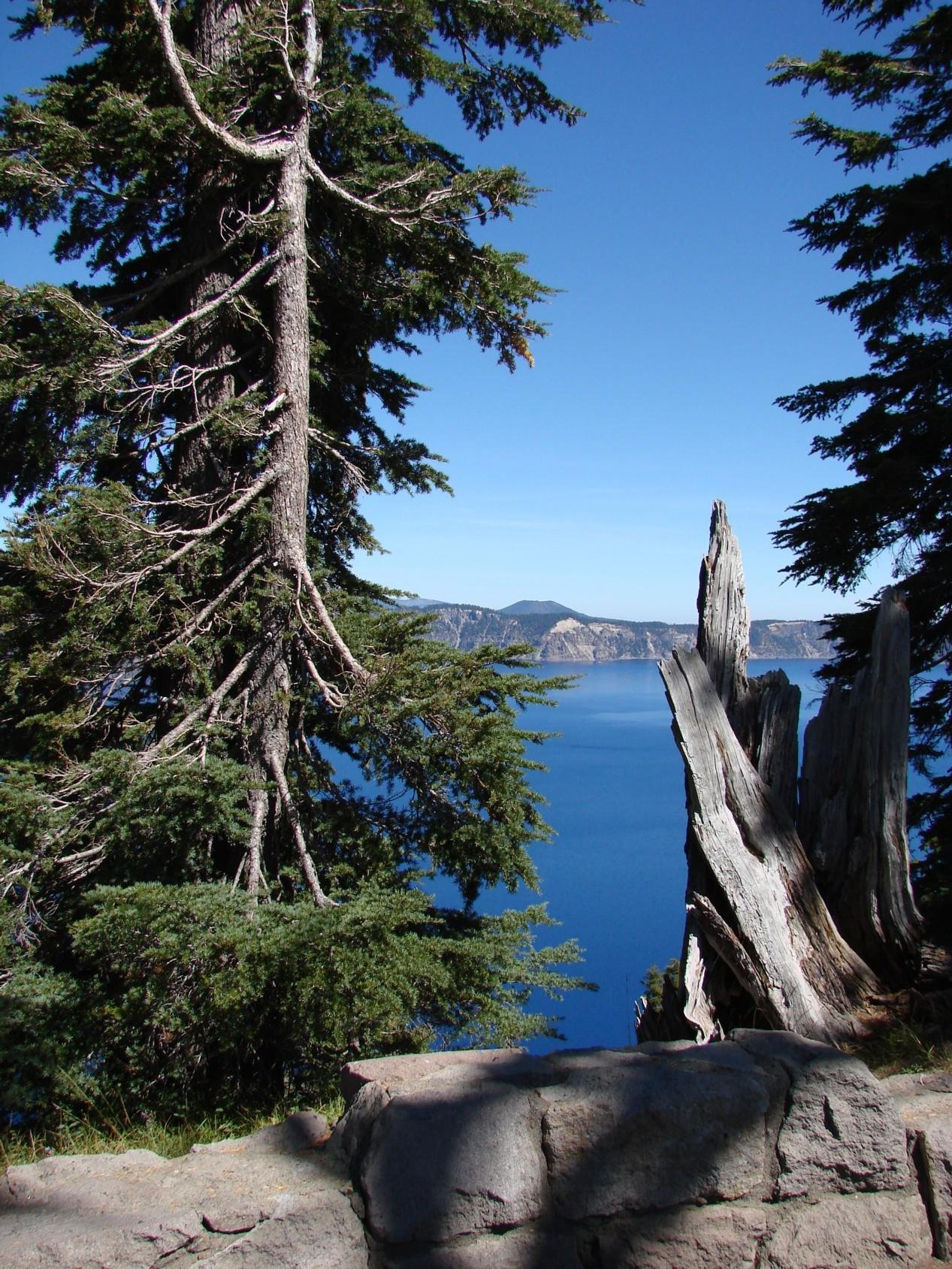The West Rim Trail at Crater Lake National Park offers breathtaking views of America’s deepest lake. This trail, part of the larger Rim Drive, provides hikers with diverse experiences ranging from easy walks to challenging climbs. Stretching along the western edge of the caldera, it showcases the park’s unique volcanic landscape, pristine waters, and surrounding forests. Visitors can enjoy panoramic vistas, encounter diverse wildlife, and explore the geological wonders that make Crater Lake a natural marvel.
What is the West Rim Trail at Crater Lake Park?

The West Rim Trail is not a single, continuous path but rather a series of interconnected trails and viewpoints along the western side of Crater Lake. It forms part of the larger Rim Trail system, which encircles the entire lake. Key features include:
- Length: Varies depending on the sections hiked, but the entire Rim Trail is approximately 23 miles
- Elevation: Ranges from 7,000 to 8,000 feet above sea level
- Terrain: Mixture of paved paths, dirt trails, and rocky sections
Hikers can choose to explore short segments or embark on longer treks, depending on their fitness level and time constraints.
How Difficult is the West Rim Trail?

The difficulty of the West Rim Trail varies significantly depending on the specific segments you choose to hike. Here’s a breakdown:
| Trail Section | Difficulty | Distance | Elevation Gain |
|---|---|---|---|
| Rim Village to Discovery Point | Easy | 1 mile (one-way) | Minimal |
| Watchman Peak Trail | Moderate | 1.6 miles (round-trip) | 415 feet |
| Cleetwood Cove Trail | Strenuous | 2.2 miles (round-trip) | 700 feet |
Factors affecting difficulty include:
– Steep inclines and declines
– Rocky and uneven terrain
– High altitude (which can affect breathing and stamina)
– Weather conditions (snow can persist into summer months)
It’s essential to assess your physical condition and choose trail sections that match your abilities.
What Are the Best Viewpoints Along the West Rim Trail?
The West Rim Trail offers some of the most spectacular views in Crater Lake National Park. Here are some must-visit viewpoints:
- Watchman Overlook:
- Best view of Wizard Island
- Popular spot for sunset photography
-
Access to Watchman Peak Trail
-
Discovery Point:
- Historic site where gold prospector John Wesley Hillman first saw Crater Lake in 1853
-
Panoramic views of the lake and Wizard Island
-
Rim Village Visitor Center:
- Excellent starting point with informative exhibits
-
Stunning lake views from the patio
-
Sinnott Memorial Overlook:
- Sheltered viewpoint with interpretive displays
-
Offers a unique perspective on the lake’s geological history
-
North Junction:
- Highest point on the Rim Drive at 7,900 feet
- Expansive views of the Cascade Range
How to Navigate the West Rim Trail?
Navigating the West Rim Trail requires some preparation:
- Obtain a Trail Map:
- Available at park visitor centers
-
Download digital versions from the National Park Service website
-
Check Trail Conditions:
- Seasonal closures due to snow are common
-
Some sections may be closed for maintenance
-
Use Trail Markers:
- Look for blue markers along the Rim Trail
-
Pay attention to signage at trail junctions
-
Plan Your Route:
- Decide on specific segments based on your time and ability
-
Consider using the park shuttle for point-to-point hikes
-
Stay on Designated Trails:
- Protect fragile ecosystems
- Ensure your safety in areas with steep drop-offs
What Wildlife Might You Encounter on the West Rim Trail?
The West Rim Trail offers opportunities for wildlife viewing. Common sightings include:
- Golden-mantled ground squirrels
- Clark’s nutcrackers
- Mule deer
- American pikas
Less common but possible encounters:
– Black bears
– Bald eagles
– Roosevelt elk
Remember to maintain a safe distance from all wildlife and never feed animals.
What is the Best Time to Hike the West Rim Trail?
The optimal time for hiking the West Rim Trail is typically from July to September. Considerations include:
- Summer (July-August):
- Peak season with warmest temperatures
- All facilities and services open
-
Busiest time with larger crowds
-
Early Fall (September-October):
- Cooler temperatures and fewer crowds
- Fall colors enhance the scenery
-
Some services may begin to close
-
Late Spring/Early Summer (May-June):
- Snow may still cover parts of the trail
- Wildflowers begin to bloom
- Fewer visitors, but some facilities may not be open yet
Winter hiking is possible but requires specialized equipment and experience due to heavy snowfall.
How to Prepare for Hiking the West Rim Trail?
Proper preparation is crucial for a safe and enjoyable experience on the West Rim Trail:
- Gear Essentials:
- Sturdy hiking boots
- Layered clothing (temperatures can vary significantly)
- Sun protection (hat, sunscreen, sunglasses)
- First aid kit
-
Navigation tools (map, compass, or GPS device)
-
Water and Food:
- Carry plenty of water (at least 2 liters per person)
-
Pack high-energy snacks and a lunch for longer hikes
-
Physical Preparation:
- Acclimate to the altitude before attempting strenuous hikes
-
Start with easier segments if you’re not used to hiking at elevation
-
Safety Precautions:
- Inform someone of your hiking plans
- Stay on designated trails
-
Be aware of weather forecasts and potential hazards
-
Leave No Trace:
- Pack out all trash
- Respect wildlife and plant life
- Use established restrooms or practice proper backcountry waste disposal
By following these guidelines, you’ll be well-prepared to explore the stunning landscapes along the West Rim Trail at Crater Lake National Park.
